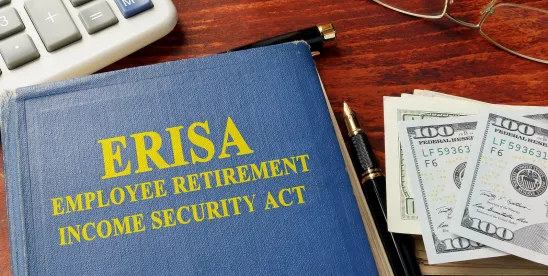Key Takeaways:
- The Supreme Court has twice declined to review ERISA arbitration cases, offering no signal that it plans to resolve the growing appellate divide.
- The Second and Sixth Circuits have struck down individual arbitration provisions, while a recent Central District of California decision, relying on Ninth Circuit precedent, upheld similar language.
- Courts applying the Effective Vindication Doctrine continue to interpret ERISA §502(a)(2) as protecting the right to seek plan-wide relief, limiting the enforceability of individual-only arbitration clauses. A pending Eleventh Circuit appeal may further test whether specifically tailored arbitration language can survive scrutiny under this doctrine.
- Plan sponsors and trustees considering mandatory arbitration provisions should consult ESOP counsel to assess risk and ensure the plan language aligns with the evolving case law in their jurisdiction.
Mandatory arbitration provisions have become increasingly common across many industries, and retirement plans are no exception — with both sponsors and trustees attempting to lessen the impact of costly lawsuits. Although appellate circuits are struggling to find common ground on arbitration in ERISA litigation, the Supreme Court has declined — for the second time in a matter of months — to take up the issue directly.
While the Supreme Court’s refusal to grant review implies a lack of appetite for addressing individualized arbitration requirements, the appellate circuits remain divided on broad applicability of the doctrine. Notably, the Supreme Court has not yet been asked to weigh in on a decision upholding individual arbitration provisions in this context. But that opportunity may arise if the Ninth or Eleventh Circuits affirm a recent Central District of California ruling that found individual arbitration requirements enforceable under ERISA §502(a)(2). 1
Second and Sixth Circuits Find Arbitration Clauses Unenforceable
In Cedeno v. Argent Tr. Co.,2 defendants asked a New York district court to compel individual arbitration in response to a class action alleging the trustee caused the plan to overpay for shares of company stock in violation of its ERISA fiduciary duty. The court invalidated the arbitration provision, reasoning that the mandatory arbitration language was an impermissible prospective waiver of statutory rights because it (i) limited claimants to individual relief and, by extension, deprived them of plan-wide remedies and (ii) prevented claimants from pursuing civil action for ERISA fiduciary violations. The Second Circuit affirmed in November 2024.
In Parker et al., v. Tenecco, Inc., et. al., 3defendantsagain sought to compel individual arbitration in a class action alleging fiduciary breaches under ERISA. As in Cedeno, the Michigan district court reasoned the provision prospectively limited claimants’ statutory right to seek plan-wide remedies. The Sixth Circuit affirmed in January 2025. 4
The rationale behind both Cedeno and Parker springs from the Supreme Court-recognized Effective Vindication Doctrine,5 which holds that provisions of an arbitration agreement limiting claimants to individual relief for fiduciary violations are unenforceable. This interpretation is grounded in the view that ERISA §502(a)(2) gives claimants the right to seek plan-wide relief for harm caused by alleged breaches of fiduciary duty.
Outlier or Turning Point? Arbitration Language Upheld in Yagy
By contrast, in Yagy, the Central District of California upheld mandatory arbitration language that limited the measure of claims and awards to an individual claimant’s losses — seemingly at odds with the principles of effective vindication.
The mandatory arbitration and class action waiver language in Yagy differed from that in Cedeno and Parker, as it expressly expanded an arbitrator’s authority to award relief where the language would otherwise prevent a claimant from obtaining relief in their individual capacity, as required under ERISA (such as removal of a fiduciary). The court further clarified that ERISA §502 and §409 establish a fiduciary duty and authorize participants to seek “appropriate relief” when it is breached — but they do not create a universal right to monetary relief on a plan-wide scale.6
In so reasoning, the California court relied on Dorman v. Charles Schwab Corp. (“Dorman II”), a 2019 decision out of the Ninth Circuit that permitted limiting claims to a participant’s individual capacity in the context of defined contribution plans, such as ESOPs.7 But given other courts have repeatedly declined to follow Dorman II , the likelihood Yagy will find its way to a successful request for certiorari is uncertain.
Eleventh Circuit Appeal Could Deepen the Split
Appellants in the Eleventh Circuit are now looking to Yagy for support in Shapiro, where oral argument was held on Aug. 12, 2025. Defendants cite the Yagy court’s findings in arguing that the Effective Vindication Doctrine should not apply, as their plan’s arbitration language only limits awarding “‘additional benefits or monetary relief’ to others” and leaves plaintiffs free to seek individual relief under ERISA. But questions from the three-judge panel — like whether the language would bar “any relief that is not claimant-centered,” — may signal reluctance to accept that argument.
For now, plan sponsors and trustees seeking to include mandatory arbitration language in plan procedures should discuss the desired language with their ESOP specialist and review the law in their jurisdiction.





 />i
/>i

